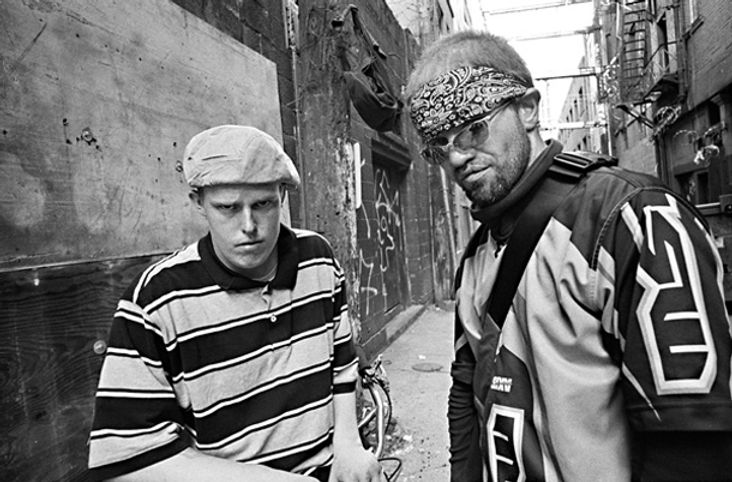
Developing Languages to Help Patients in Vancouver
How do we, as a society, describe people living on the streets with mental health and addiction?
In some circles, we use derogatory terms such as "junkies" "addicts" or "homeless."
Research has shown there to be a large spectrum of people living either on the street, in a tent, on a friend's couch, in a low-income SRO, in a shelter, or a combination of these places. Within that group, there is a spectrum of medical complexity that encompasses Fentanyl Addiction, Stimulant Addiction, Alcohol Addiction, Schizophrenia, Bi-Polar Disorder, Severe Depression and/or Anxiety, HIV, Hepatitis C, MRSA, Diabetes Type 1 and 2, COPD, Traumatic Brain Injury, FASD, and other neurological or chronic conditions. Furthermore, there are age factors and a variety of levels of stability achieved.
There are 45 year old individuals who and chronically homeless but are on a stable medication program and have charming dispositions.
Others may be in their early twenties and suffer from ravenous addiction impulses with no current relationships and capable of using any means necessary to satisfy their overwhelming physical compulsions.
Yet we do not have terms to describe these differences. There are no labels for any of us, including the at-risk citizens, to describe their situation, how they identify, where they came from and where they are going.
Are they junkies? Addicts? Vagrants? Failures?
We believe the truth to be much more nuanced than those terms.
The Downtown Eastside has been a cultural force over the last 2 decades in the introduction of language to give description and understanding to the different situations faced by our at-risk population. Insite was the first stand alone safe consumption site and its brand was the genesis of "safe consumption" into the mainstream lexicon.
The concept that, perhaps drug usage did not have to have such stigma attached was groundbreaking then and continues to inform our modern way of viewing drug use.
It speaks to the notion that there are alternatives to helping people with heroin addiction beyond arresting them and forcing them into detox.

Harm reduction is the general term that the DTES has actualized. Many in the addiction space, healthcare practitioners included, believe that recovery is the only appropriate option for anyone faced with addiction and that their recovery capital can be quantified and measured. But what about those who were born into physical disability, trauma, cognitive impairment, and addiction from birth? Those who have nothing to reclaim? Those who are living this life because it is the only way they understand how to survive. Harm reduction is the concept that we can minimize an individual's collateral damage by accepting their situation, meeting them where they are, and reducing the long term issues that arise from the at-risk lifestyle.
In recent years, the fentanyl crisis dominated the headlines and claimed thousands of lives across the continent. One solution that has come to the forefront is the idea of safe supply. This is the concept that we can replace the street supply of drugs, which are often laced with unknown and dangerous chemicals, with pharmaceutical grade medication that will be safer for the person using that substance, overseen by a care team, and ultimately allow the individual to achieve maximum stability in their life.
Medications such as Diacetyl Morphine, Hydromorphone, Oral Kadian, and even patch-delivered fentanyl are all programs that have arisen from and are encompassed by the safe supply of population health.
Turtle Island Society and its stakeholders understand the importance of language as it applies to how we relate to situations and even how we see ourselves.Our team is actively working with like-minded people and organizations to develop studies and language itself to further the health of our patients and the understanding of both outsiders looking in as well as for the people we encounter everyday.

